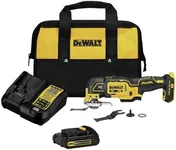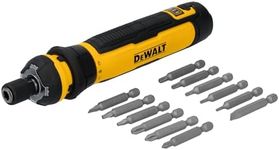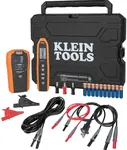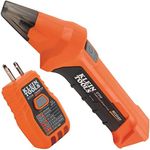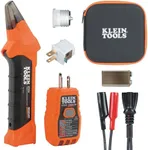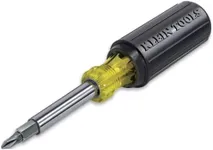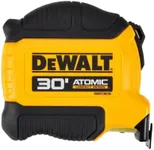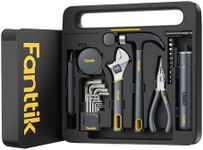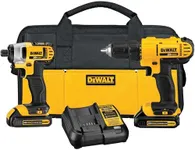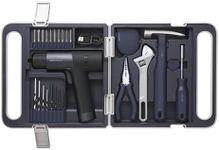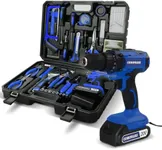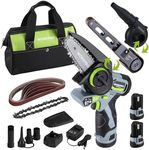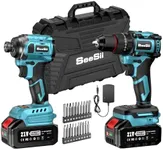Buying Guide for the Best Electrician Tools
Choosing the right tools as an electrician is crucial for ensuring safety, efficiency, and quality in your work. The right tools can make a significant difference in how quickly and effectively you can complete a job. When selecting electrician tools, consider the types of tasks you will be performing, the environments you will be working in, and your level of experience. Here are some key specifications to consider when picking the best tools for your needs.InsulationInsulation on tools is essential for protecting you from electrical shocks. Tools with insulated handles are designed to provide a barrier between you and the electrical current. When choosing tools, look for those that are rated for the voltage levels you will be working with. For general household work, tools rated for up to 1000V are usually sufficient. For industrial or high-voltage work, you may need tools rated for higher voltages. Always ensure the insulation is intact and undamaged before use.
DurabilityDurability refers to how well a tool can withstand regular use and harsh conditions. Electrician tools should be made from high-quality materials that can endure drops, impacts, and exposure to various elements. Tools made from hardened steel or other robust materials are generally more durable. Consider the frequency and intensity of your work; if you are a professional electrician, investing in more durable tools will save you money and hassle in the long run.
ErgonomicsErgonomics is about how comfortable and easy a tool is to use. Tools with ergonomic designs reduce strain on your hands and wrists, which is important for preventing injuries and fatigue during long work sessions. Look for tools with comfortable grips, balanced weight, and designs that fit well in your hand. If you have smaller or larger hands, make sure the tool size is appropriate for you. Testing the tool in your hand before purchasing can help ensure it feels right.
PrecisionPrecision is crucial for tasks that require accuracy, such as wiring and circuit work. Tools like wire strippers, pliers, and screwdrivers should allow you to work with small components without damaging them. Precision tools often have fine tips and adjustable settings to accommodate different wire sizes and types. If your work involves detailed electrical tasks, prioritize tools that offer high precision and control.
VersatilityVersatility refers to the range of tasks a tool can perform. Multi-functional tools can save space and reduce the number of tools you need to carry. For example, a multi-tool might combine pliers, wire cutters, and a screwdriver in one. While versatile tools are convenient, ensure they do not compromise on the quality and functionality of each individual feature. If you frequently switch between different tasks, versatile tools can be a great asset.
Safety FeaturesSafety features are designed to protect you from accidents and injuries. Look for tools with features like non-slip grips, locking mechanisms, and insulated handles. Some tools also have built-in voltage detectors to alert you to live wires. Safety features are particularly important if you are working in environments with high risks of electrical hazards. Always prioritize tools that enhance your safety on the job.
